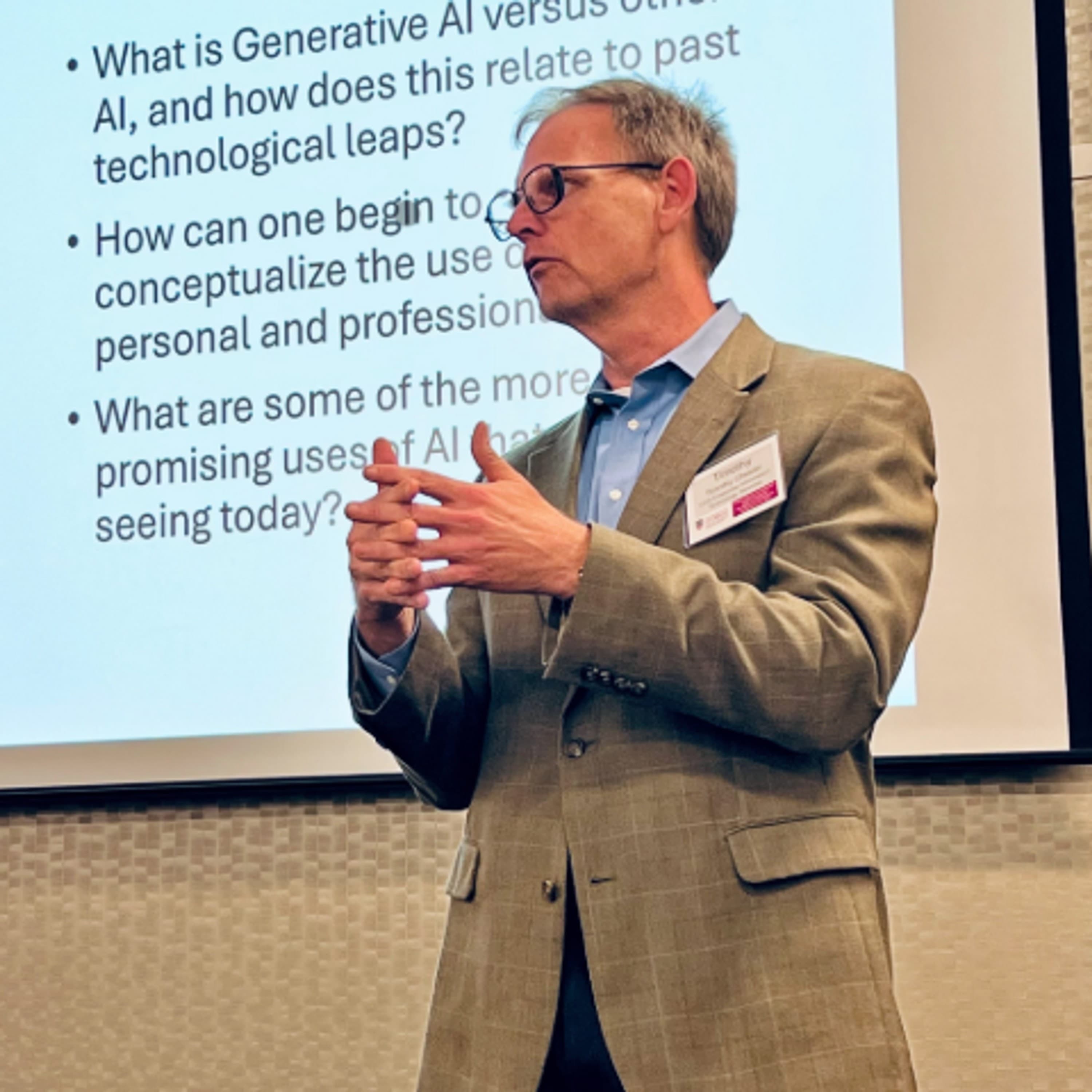Deep Drive: How Tech Disrupted Trust
In this episode, we explore how the Internet, smartphones, and artificial intelligence have fundamentally reshaped the way we connect—not just to information, but to one another. Drawing from decades of experience as a higher ed CIO and trained sociologist, I walk through the three major tech shifts of our time—1993, 2007, and 2022—and examine how each one chipped away at the traditional institutions that once structured our social and civic lives. What began as a promise of empowerment has left us tethered to algorithm-driven platforms, disconnected from shared norms, and increasingly polarized. From the collapse of gatekeeping to the rise of brittle, many-to-many networks, this episode reflects on what we’ve lost, what we’ve learned, and what it might take to rebuild trust in the digital age.
About the podcast
Technology is reshaping higher education, leadership, and the economy—but the biggest challenges aren’t just technical, they’re cultural and structural. Created by Timothy Chester, this podcast explores the real impact of AI, automation, and digital transformation on universities, work, and society. With a sociologist’s lens and decades in higher ed IT leadership, he cuts through the hype to uncover what truly matters.
Share this episode
Share with friends and family
